7 Different Kinds of Milk and their Uses.
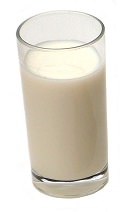 Whether
it's served with cookies, in a bowl of cereal or just taken as a simple
refreshing drink, milk is something many of us drink every day. The
most common kind of natural cow milk is a great source for protein,
calcium, potassium, and vitamins A and D, all of which are known to help
the body build bones and keep them strong. But cow milk is far from
being the only kind there is. There are many other types of milk for
people who are lactose intolerant, people who are looking for other
health benefits, or simply those that enjoy a different taste. Whether
it's served with cookies, in a bowl of cereal or just taken as a simple
refreshing drink, milk is something many of us drink every day. The
most common kind of natural cow milk is a great source for protein,
calcium, potassium, and vitamins A and D, all of which are known to help
the body build bones and keep them strong. But cow milk is far from
being the only kind there is. There are many other types of milk for
people who are lactose intolerant, people who are looking for other
health benefits, or simply those that enjoy a different taste. |
|
Traditional cow milk:
After it’s taken from the cow, the
milk is pasteurized (heated then quickly cooled) to kill bacteria such
as E. coli and salmonella. Nutrition experts recommend drinking low-fat
(1%) milk (100 calories, 2.5 grams fat) to reduce your intake of the
saturated fats that may lead to heart diseases. Whole milk has about 8
grams of fat per 8-ounce glass, so it’s better to only drink it on rare
occasions.
|
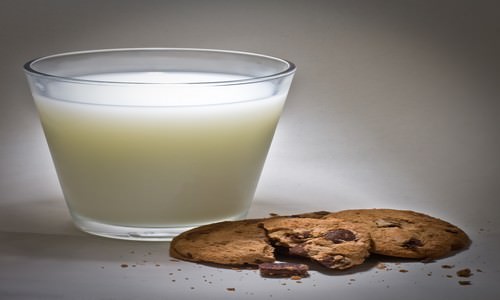 |
|
Organic milk:
This kind of milk is produced by cows
that are given organic food and mostly roam freely and graze on
pesticide-free grass. The cows are not treated with any synthetic
hormones to increase milk production but the milk itself is still
pasteurized. Although most experts say there is not much difference
between organic and normal milk, some studies have found other evidence.
According to those studies, the organic milk contains more beneficial
omega-3 fatty acids and antioxidants, then the non-organic kind.
Organic milk can be added to anything and used just like normal milk.
|
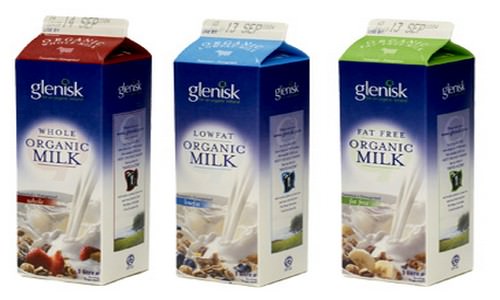 |
|
Soy milk:
Based on an extraction from mature
soy beans mixed with water and a natural sweetener, soy milk is
naturally low in saturated fat and cholesterol-free. It is slightly
thicker than cow’s milk and it’s safe to drink for people who have dairy
allergies or lactose-intolerance. It has almost as much protein as
cow's milk and comes in many different flavors, the healthiest is of
course, is the natural.
Best used in: Creamy soups, salad dressings, casseroles, sauces and other savory foods.
|
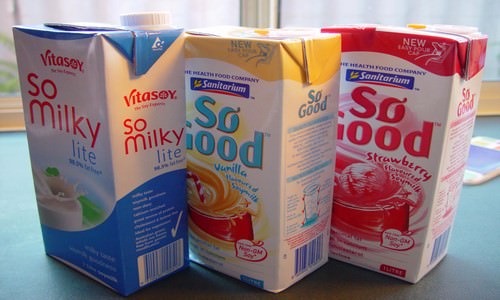 |
|
Rice milk:
Created from a mixture of partially
milled rice and water, this type of milk is available in a variety of
flavors like chocolate and vanilla. It's lower in protein and higher in
carbohydrates than cow’s milk and soy milk, which makes it great as a
pre or post workout drink. It has a light, watery texture and a sweet
taste. Rice milk often comes in aseptic containers and doesn’t have to
be refrigerated until it’s opened.
Best used in: desserts, baked goods, pancakes, and French toast. |
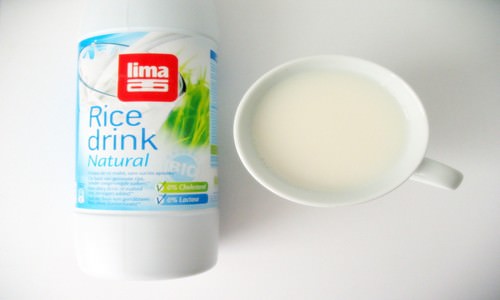 |
|
Almond milk:
Made from blended roasted almond, the
resulting milk is mostly enriched with nutrients like calcium, vitamin
D, and the antioxidant vitamin E, but has very little protein. The sweet
and nutty flavor goes well with coffee or cereal, so it’s a tasty
alternative for dieters. Almond milk is free of saturated fat,
cholesterol, and has no lactose. The unsweetened versions have just 60
calories a cup. Almond milk does have one disadvantage since it's higher
in sodium than other alternatives, but if you don’t drink too much and
keep a balanced diet, then it shouldn't be a problem.
Best used in: smoothies, coffee and cereal.
|
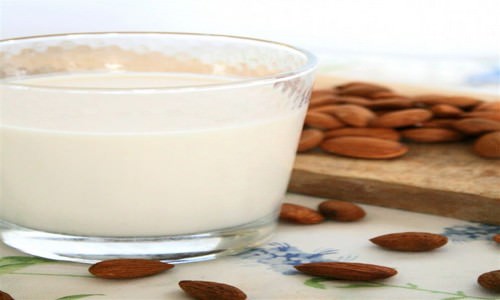 |
|
Hemp milk:
This might be one of the healthiest
dairy-free alternatives for milk. Hemp milk is perfectly legal and is
made from hemp plant seeds, which don’t contain THC. It supplies
high-quality protein and a good mix of amino acids including
alpha-linolenic acid (ALA), a heart-healthy omega-3 fatty acid. Be
warned that it has a thicker and nuttier taste than soy or rice milks,
so it may not appeal to everyone.
Best used in: mashed potatoes, muffins, quick breads and just about any baked food.
|
|
|
|
Coconut milk:
This rich, creamy milk is made from
the meat and juice of coconuts and is very often used in Indian and Thai
cuisine. It has a strong, sweet flavor, which means a little goes a
long way. Coconut milk has generous amounts of phosphorous, potassium
and fiber, the least amount of sodium and is fairly low on calories.
Most brands are also added with about half a day's worth of vitamin B12,
a brain-boosting nutrient.
Best used in: coffee, tea, pudding, smoothies, oatmeal and anything you want to thicken and sweeten.
|
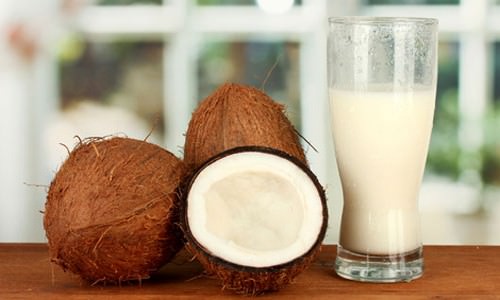 |
Aucun commentaire:
Enregistrer un commentaire